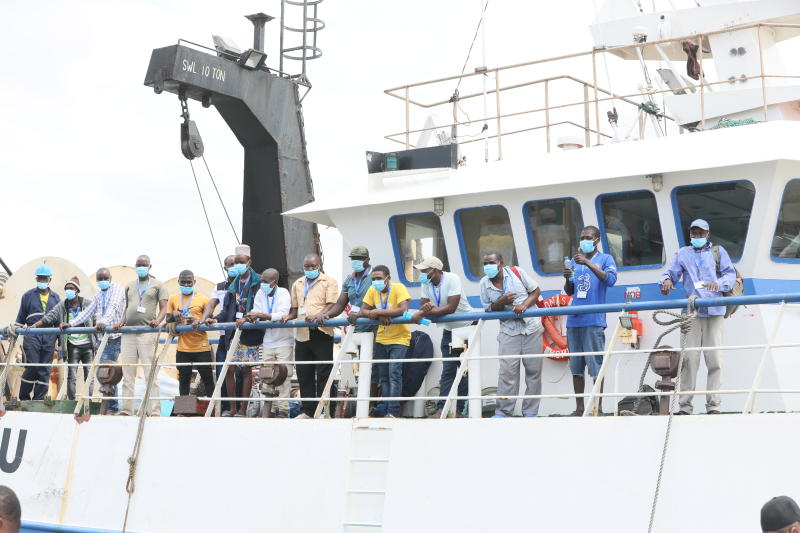×
The Standard e-Paper
Smart Minds Choose Us

Some 400 youth from the coast prepare to go for deep sea fishing aboard the vessel, Jonas Vessel. Deep sea fishing has become attractive for Kenyans sailors. [Omondi Onyango, Standard]
Early this month, a Senate committee was told of the horrors that Kenyan seafarers had to endure in a Chinese fishing vessel.







